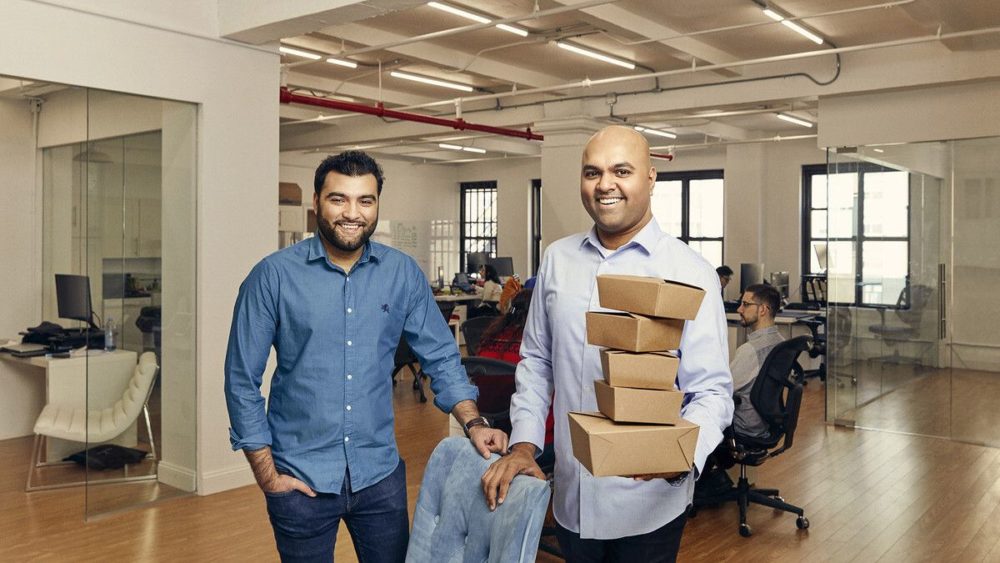As quarantine restrictions lift, workers are gearing up to return to work. For many of them, office life will look a lot different than it did prior to the pandemic. To incentivize employees’ return to work, many employers are offering to pay for their workers’ lunch, according to Sharebite COO and co-founder Mohsin Memon.
“Pre-pandemic, food is what brought people to meetings. Our thesis is that when things start to reopen, food is what is going to bring people back to the office. You’re starting to see that play out across organizations that historically were reluctant to actually feed their employees. They’ve changed course and decided that they’ve always been profitable and that it’s time to spread some of the wealth around by feeding their employees,” Memon explains.
Based in New York, Sharebite recently raised a $15 million Series A round for its food ordering platform geared towards workplaces. Impact-driven and minority-led investment firm Lafayette Square led this round along with the founders and former executives of Seamless (now part of GrubHub) and Delivery Hero.
Sharebite began as an enterprise-focused technology that allowed companies to manage food ordering and expense allocation across all levels of the organization. Many businesses like investment banks, law firms, and tech companies have tapped these services to help streamline lunchtime for employees while handling the financial aspects of purchasing meals for some occasions.
In November 2020, it launched Sharebite Stations, which it describes as a post-pandemic lunch solution for businesses as they bring workers back to the office. Companies that historically ordered buffet-style catering or had in-house cafeterias are now looking for new solutions in the post-pandemic world that are not only safer but also reduce waste.
Orders are placed using Sharebite’s group order technology from curated and popular local restaurants. The orders are then individually packaged, labeled, delivered, and placed in designated areas within an office, creating a contactless ordering experience. Orders are also batched into drop-off windows, which allows employees to avoid increasingly expensive fees charged by other delivery platforms.
The service has the added bonus of giving employees the option of staying out of busy restaurants or crowded areas during the lunch rush as Covid-19 still poses a concern. Restaurants are fond of the service because it boosts their efficiency and economies of scale when preparing larger batches of orders. Sharebite also acts as free advertising for restaurants by bringing their menu straight to workers and making ordering simple.
Through Sharebite Stations, companies can choose to fully pay for employees’ lunches, partially subsidize them, or not contribute at all. Initially, the startup predicted that roughly 25% of employers would choose the option where they pay for employees’ lunch. But as workers return to the office, many businesses are choosing to cover their lunches for an extended period of time or even indefinitely.
“Over 80% of clients that we are onboarding are paying for lunch. Whether this is temporary during the transition or long-term, we’ll find out. But some places are saying that employees love it so much they are going to continue it.” Memon says. “Free food is a big, big way to do that. The $10 or $15 companies pay to provide food is worth way more to people than the cash.”
An ESG angle
Sharebite comes with an ESG angle, too. For every meal purchased on the platform, Sharebite donates a meal to a child who experiences hunger in New York City. This offers workplaces an extra incentive for using the platform and providing meals for their workers. It also adds an impact angle to the startup that will attract the growing number of VCs who want to do more with their funds than turn a profit.
“I hear continuously from our clients that they want to emerge from the pandemic and be on the right side of history. Supporting small local restaurants and small businesses, as well as society, all in the same transaction, is going to become a priority at these organizations. Over the years, our team has really focused on that and we’ve built the gold standard of corporate food ordering technologies.” Dilip Rao, CEO and co-founder, also tells AFN.
Today, a number of popular restaurants and major corporations in NYC use the service, including WeWork, Coinbase, Better.com, McKinsey, and Horizon Media. Sharebite reports working with over 3,000 merchants across the US and will use the new funding to expedite scaling nationwide. It also claims to have over 70 companies on its onboarding waitlist after experience 400% growth through the pandemic.
“At the corporate level, we haven’t come across much competition,” Rao says. “I’m sure Uber, DoorDash, and GrubHub all have a variation of it but they are consumer-facing businesses. They don’t have the bells and whistles and the enterprise use cases that we have.”
A few other startups are targeting the workplace catering segment, but the sector remains small. online catering marketplaces such as ezCater, which is aiming to help the 60,000 restaurants and caterers on its platform interact with larger clients. It closed a $150 million Series D-1 in 2019. There’s also Zesty, which describes itself as a healthy office catering service.





